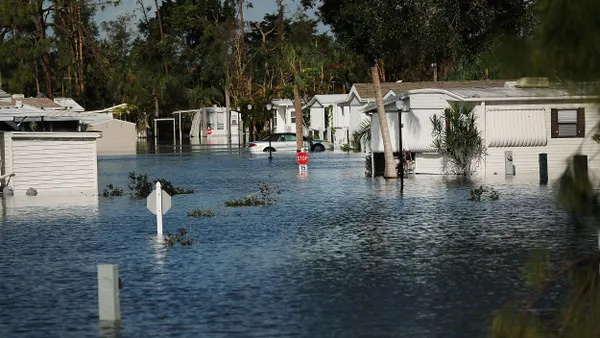Dive Brief:
- Wisconsin Gov. Tony Evers, along with the state’s Department of Natural Resources, announced on Dec. 13 that the Badger State would send $414.4 million to 84 municipalities through its Clean Water Fund program.
- The funding will help municipalities across the state build needed water infrastructure, according to the release. Projects that reduce phosphorus discharges and address aging equipment are included in the awards, with a focus on small and disadvantaged communities.
- The $414.4 million in allocated financial aid is a record amount for the program, according to the release and marks the second year of funding from the Infrastructure Investment and Jobs Act.
Dive Insight:
The Clean Water Fund Program has existed since 1991, according to the DNR’s website. Typical projects include sewer replacement or rehabilitation, and wastewater treatment facility upgrades. Since its establishment, the initiative has disbursed over $5.5 billion in financial assistance to Wisconsin municipalities.
“These dollars will help communities ensure they have the infrastructure their residents can trust to address wastewater and stormwater and be even better prepared to handle any future challenges that may arise,” Gov. Evers said in the release.
The money is part of the Supplemental Wastewater Bipartisan Infrastructure Law funding, according to the release. The full program, which funds work across the country, provides $50 billion for essential water, wastewater and stormwater infrastructure upgrades, according to the Environmental Protection Agency.
Municipalities earmarked for money in Wisconsin include:
- The village of Denmark, which will receive $5 million to construct a tertiary treatment process at the village’s wastewater treatment plant.
- The city of Superior, which will receive $3.8 million to reduce excessive flow to the wastewater treatment plant in times of wet weather, as well as reduce flooding. Stormwater will be routed for treatment to improve water quality.
- The village of Soldiers Grove, which will receive $386,000 to reduce concentrations of phosphorus in the effluent from the village’s wastewater treatment plant, as well as to replace and upgrade aging equipment.













